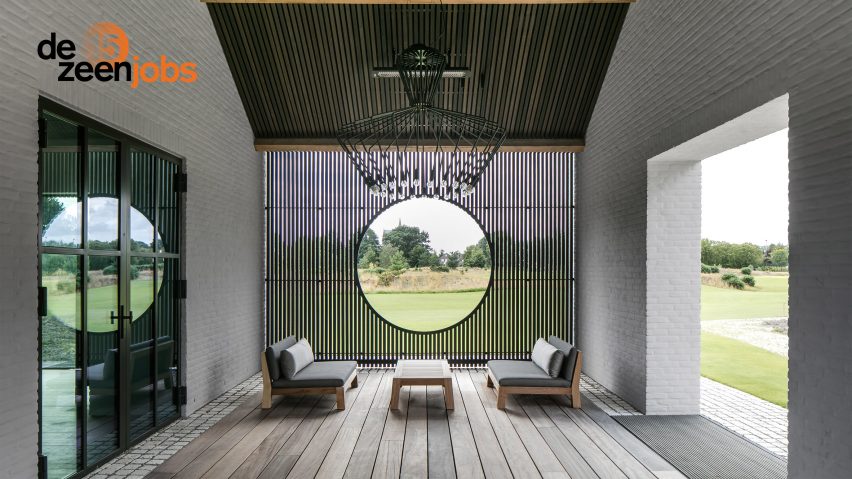
"Our focus extends to building long-term relationships, not just acquiring talent," says Studio Piet Boon
Continuing the Dezeen Jobs: How We Recruit series, Dezeen talks to Studio Piet Boon's chief design officer Roland Kokkeler and studio manager Tim Vogel about the changes in skills required to work in the design industry.
Sophie Chapman: Can you discuss your recent and upcoming projects?
Roland Kokkeler: As a multidisciplinary design studio, we are involved in interior, architecture and product design, undertaking a wide variety of projects and product launches throughout the year.
Currently, we are engaged in 40 ongoing studio projects, ranging from inner-city apartments, hotel projects and freestanding villas. This year, we launched a diverse outdoor collection at the Salone del Mobile, and at the beginning of October, we revealed an extensive rug collection with CC-Tapis called Layers.
We are currently in the process of developing several new furniture items for the Piet Boon collection, which will be unveiled at the upcoming Milan fair. Additionally, we have an exciting collaboration with another well-known Italian brand that we will be announcing shortly.
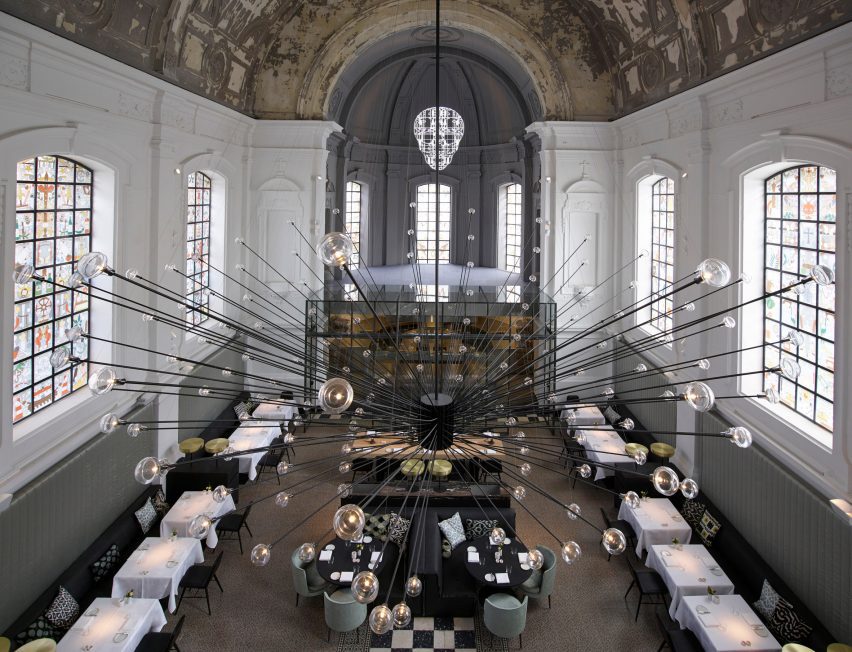
Sophie Chapman: What do you think has changed with recruitment throughout the last 10 years?
Tim Vogel: Our recruitment strategy has evolved significantly over the past decade. Studio Piet Boon now has five different design teams, each working on different projects, including a specialised team dedicated to product design and creating items such as furniture.
This transformation is all about fostering creative cross-pollination, which has resulted in a better definition of internal divisions and job roles due to our broad scope. We remain multidisciplinary, embracing cross-functional tasks as needed throughout the year.
We also prioritise self-starting and ownership among our team members and support employee wellbeing – offering free lunches, exercise at the office and flexible working options with the aim of giving more responsibility to our employees to "get the job done".
In a nutshell, our current recruitment strategy reflects Studio Piet Boon's spirit, where creativity and collaboration thrive, and we highly value our unique team.
Sophie Chapman: Have these changes had more of an impact on specific roles?
Roland Kokkeler: The designer's role has evolved significantly due to our studio's growth and the impact of IT developments. Designers now work in a more complex digital environment and have expanded their skill set to cover architecture, interior design and furniture.
This transformation enables our designers to contribute across various disciplines, enhancing their adaptability and versatility in the ever-changing design landscape.
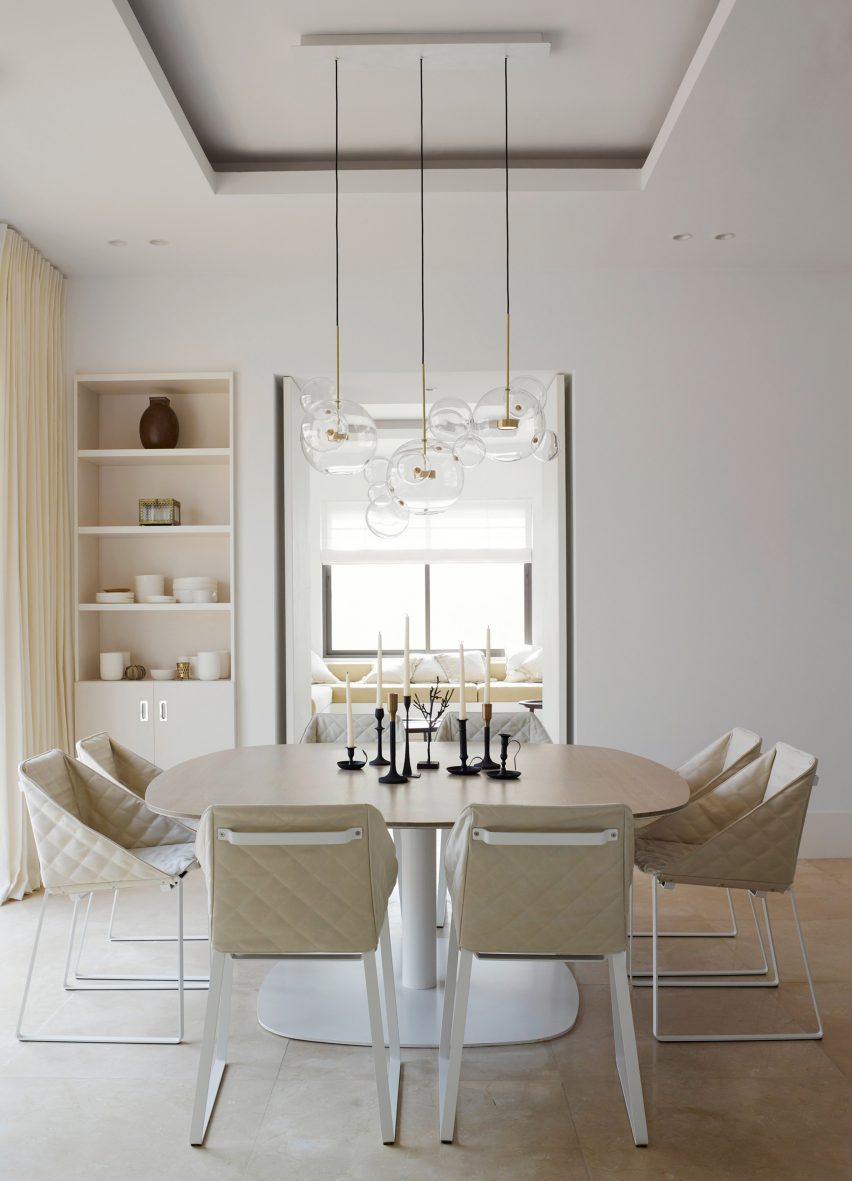
Sophie Chapman: Are there any skill sets that you don't need candidates to have anymore and why?
Tim Vogel: Our evolution from a local Dutch studio to a global design firm has brought about significant changes in the skill sets we prioritise.
In the past, we heavily relied on analogue design, where handcraftsmanship and manual sketching were fundamental. However, as the industry has shifted towards digital design, these traditional skills are no longer a primary requirement for our candidates.
Today, we are looking for professionals who can seamlessly adapt to our international and high-end environment. Effective communication and collaboration at a high-end level have become crucial, especially when working with clients and partners from different parts of the world.
We seek candidates who can thrive in this diverse, dynamic and demanding landscape, where a strong grasp of digital design tools and the ability to work within a global context takes precedence over the traditional analogue skills of the past.
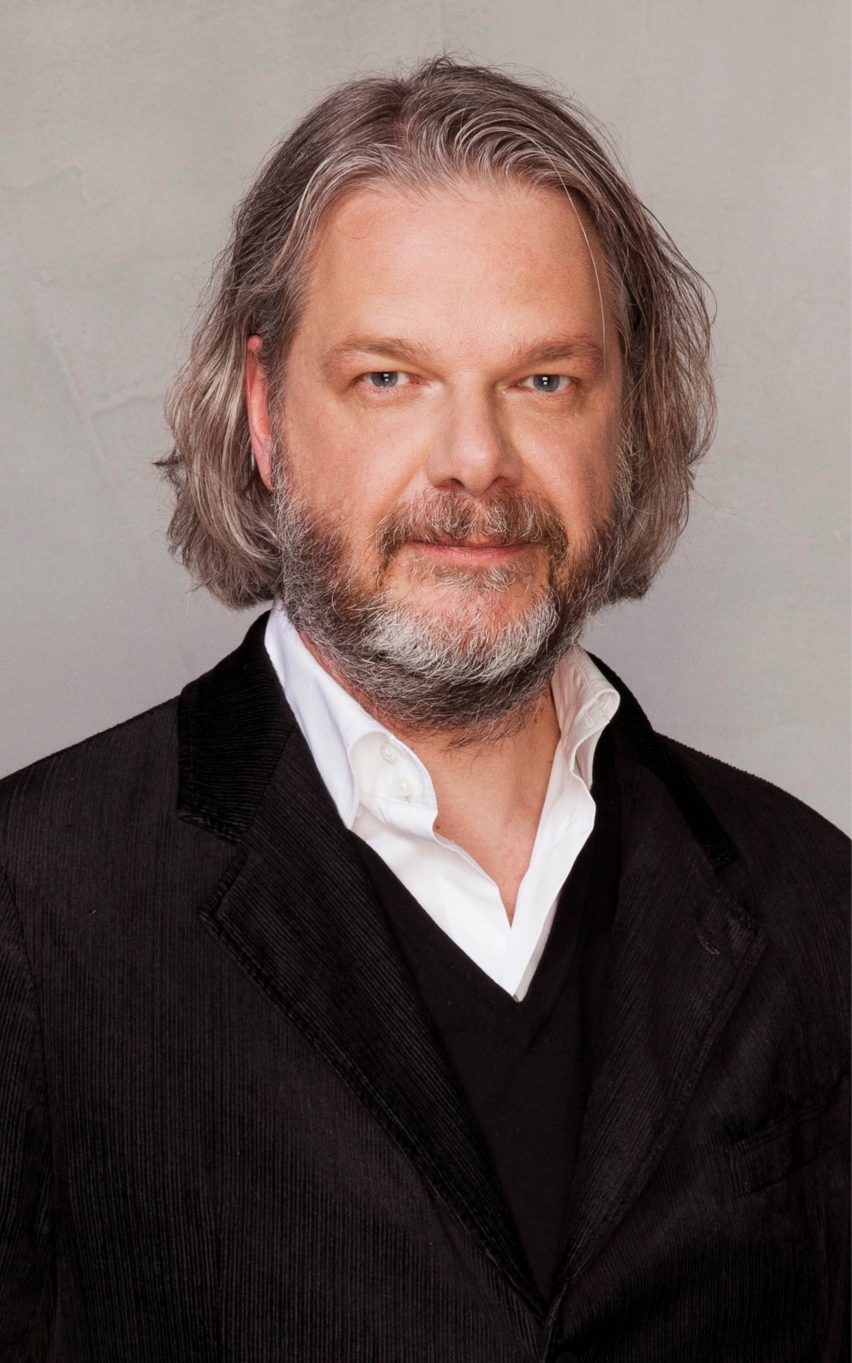
Sophie Chapman: How multidisciplinary is your team at the moment?
Roland Kokkeler: At Studio Piet Boon, we embrace a multidisciplinary approach, which is essential as our studio has expanded into various design fields.
While we've introduced more defined roles, our commitment to all-around skill development remains strong, spanning from FF&E to architecture. This adaptability is central to our practice's success.
Moreover, we highly value-focused specialisation in certain roles to lead in design innovation compared to other studios. Our team maintains a strong, family-like unity, ensuring our multidisciplinary approach is effectively realised.
It's also worth noting that, alongside our multidisciplinary focus, we have well-defined product design roles.
Our practice thrives on a multidisciplinary approach, the balance of specialisation in certain roles, and the strong unity of our team, all of which collectively define our identity and drive our success.
Sophie Chapman: Looking into the future, where do you see recruitment heading?
Tim Vogel: In the future, we anticipate a shift in recruitment towards a greater emphasis on soft skills and the 'fit' within our team.
Our focus extends to building long-term relationships, not just acquiring talent. We aim to attract and challenge our existing team members, emphasising talent retention and providing comprehensive support for their growth and development.
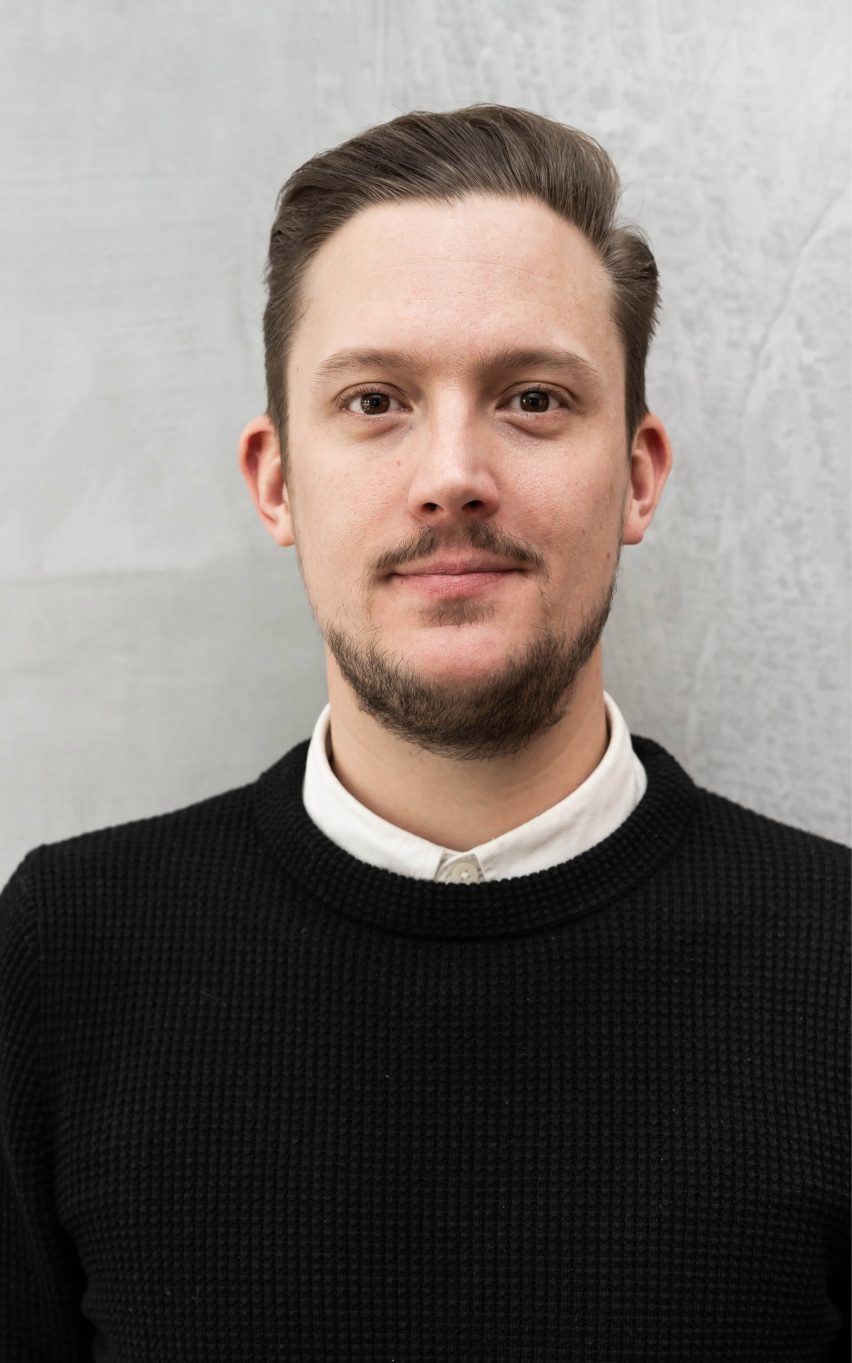
Sophie Chapman: Is there anything you're doing differently during the interview and application process compared to 10 years ago?
Tim Vogel: Yes, our interview and application process has evolved over the past decade. With our international scope, we now utilise digital tools like video calls for initial assessments, which has been successful. However, for the final decision, in-person conversations remain crucial.
AI allows us to scan job sites for specific keywords, particularly during talent scarcity, enabling us to proactively approach potential new team members who are the right fit for our studio – making our recruitment process more efficient, diverse and adaptable.
Once we receive a portfolio, we focus on understanding a candidate's individual contributions to their showcased projects, providing a more comprehensive assessment.
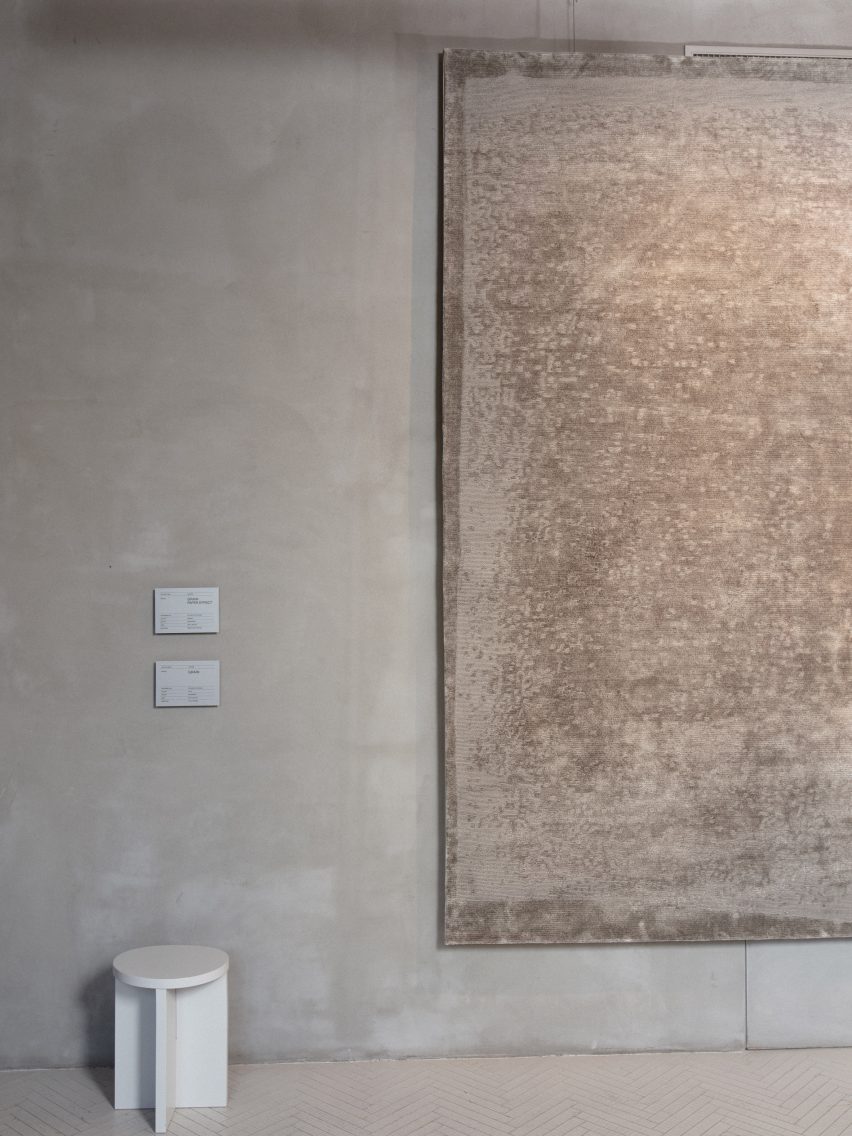
Sophie Chapman: What advice can you give people looking for a role in the company?
Tim Vogel: For those looking to join our company, we advise focusing on gaining experience and all-around skills, as our current designer roles are heavily experience-based.
Alongside traditional hard skills, soft skills have become increasingly important – collaboration, leadership, presentation skills and emotional intelligence, for example.
Building up the experience takes time and dedication. As a new designer, be a 'sponge,' absorb knowledge from experienced team members and commit to long-term learning and growth.
We invest significant time in aligning new team members with our studio's DNA, aiming for lasting relationships. Understanding what it takes to create Studio Piet Boon designs can take years, so we look for individuals with commitment and ambition to learn and contribute to our design philosophy.
Find out more about Studio Piet Boon by visiting its website.
View current and future vacancies by checking their company profile on Dezeen Jobs.
Dezeen Jobs: How We Recruit series
This article is part of Dezeen Jobs: How We Recruit, a series of interviews to mark Dezeen Jobs turning 15, which explores changing hiring practices and future recruitment needs for companies around the world.